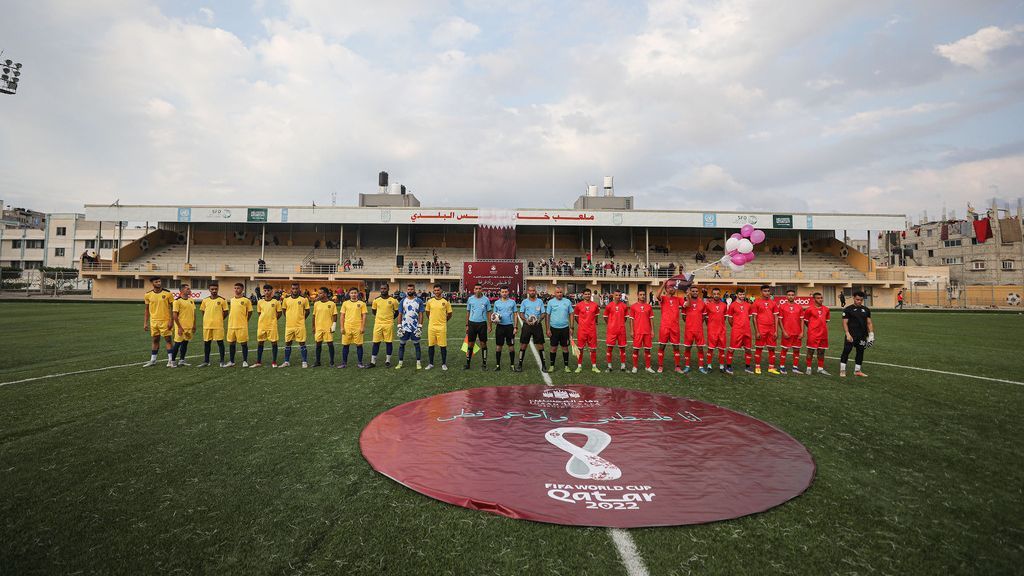The World Cup kicks off next week in Qatar at a time when international soccer is under attack from match-fixing syndicates.
Sportradar, a prominent international firm that monitors the betting markets, says it identified approximately 600 potentially manipulated soccer matches in the first nine months of 2022. Most of the suspicious activity is centered on smaller leagues, involving players and officials that receive low compensation, and experts say it is unlikely that match-fixing syndicates would target an event as high-profile as the World Cup. But, with more than $100 billion expected to be wagered on the World Cup globally, FIFA is taking precautions.
For the first time, an integrity task force of stakeholders, including Sportradar, INTERPOL, the International Betting Integrity Association (IBIA) and the FBI, will be monitoring the betting markets and in-game wagering on every World Cup match. The task force will be watching for irregularities on everything from goals to yellow cards. The FBI declined to comment on its role in the task force but is participating in the group in preparation for the 2026 World Cup in the United States, according to FIFA.
Sportradar, which has partnered with many U.S. sports leagues to track the betting markets, says it uses artificial intelligence and machine learning to monitor 30 billion data sets from more than 600 bookmakers globally. It also employs a team of 35 intelligence officers with backgrounds in counterterrorism, financial fraud, military defense and law enforcement.
“I know it sounds like James Bond, but it’s not,” Andreas Krannich, managing director of Sportradar’s integrity services, told ESPN. “It’s solid intelligence work. We’ve even infiltrated a match-fixing organization.”
In addition to the monitoring of the betting markets, FIFA held workshops to educate World Cup teams and referees of the threat of match-fixing and the protocols that are in place, which includes a whistle-blowing mechanism. Still, even with all the precautions, preventing match-fixing attempts is extremely difficult. Education, the threat of detection and eventual penalties are the best weapons sports leagues have to dissuade match-fixers from coming after their games.
“In the past years, FIFA has adopted an effective approach towards the fight against all forms of manipulation and/or the unlawful influencing of football matches or competitions,” a FIFA spokesperson wrote in an email to ESPN. “In line with this approach, FIFA’s judicial bodies have been taking concrete action, even though no cases of match manipulation have been reported in relation to the final competition of the FIFA World Cup.”
However, in 2016, five betting operators and integrity monitors, including Sportradar, flagged irregular betting patterns during a World Cup qualifying match between South Africa and Senegal. The irregular betting was centered on the “over” on the number of goals to be scored in the match and was correlated subsequently to “intentional wrong decisions” by referee Joseph Lamptey of Ghana. Prosecutors alleged that Lamptey awarded South Africa a penalty kick on a non-existent handball. After an investigation, FIFA banned Lamptey for life.
“The World Cup is relatively low-risk from a match-fixing perspective,” Matt Fowler, director of integrity for the IBIA, said during an October phone interview with ESPN.
The IBIA is made up of sportsbook operators from across the world, who have the ability to drill down to customer-level account data to identify any suspicious activity. For example, if a flurry of new accounts are opened around the same time and begin betting heavily on the same even, IBIA members may raise red flags, prompting deeper investigation.
While there will be more scrutiny than ever on this year’s World Cup, there also will be more money on the line. FIFA estimated that $155 billion was bet globally on the 2018 World Cup, which took place in Russia during the tournament’s traditional summer slot. The volume of money wagered on this year’s World Cup could help match-fixers hide any attempt to compromise events.
“It’s a valid question because of the liquidity,” Fowler said. “It’s going to generate a huge amount of betting interest all over the world. When you do have that liquidity, being able to look at the customer-level activity makes a big difference, because clearly you could potentially have suspicious money within a very liquid market, and the lines won’t necessarily move.
“I think the more traditional methods of just tracking line movements may be more difficult to spot [irregularities] because of the sheer size of the market [in the World Cup],” he added.
There is also some concern that match-fixers may target smaller in-game events, like if a player will receive a yellow card, something that is known as “spot-fixing.” The betting markets on the micro-events, though, don’t typically have enough liquidity to make it worth the risk for match-fixers looking for a big score.
“Put yourself in the shoes of a match-fixer,” Sportradar’s Krannich said. “You need a return on investment and liquidity in the market. You have to convince the players and the referee and also find a bookmaker who’s willing to accept your money. If you want to place $10,000 on the first throw-in or yellow card, good luck. The bookmaker is always protecting himself by reducing the limits.
“You can never rule it out,” Krannich said, “but from my perspective, the chance that organized crime groups will target the FIFA World Cup here in Qatar in comparison to other competitions, it’s relatively low.”
Overall, though, he remains concerned about the level of match-fixing he’s detected across all sports. He believes the lingering financial ramifications from the coronavirus pandemic have left smaller sports organizations vulnerable, creating a “dream scenario” for match-fixers.
“For match-fixers, it’s Christmas and Easter on the same day, and the party goes on,” Krannich said. “This sounds cynical, but it’s unfortunately the situation, and we see it all over the place.”
